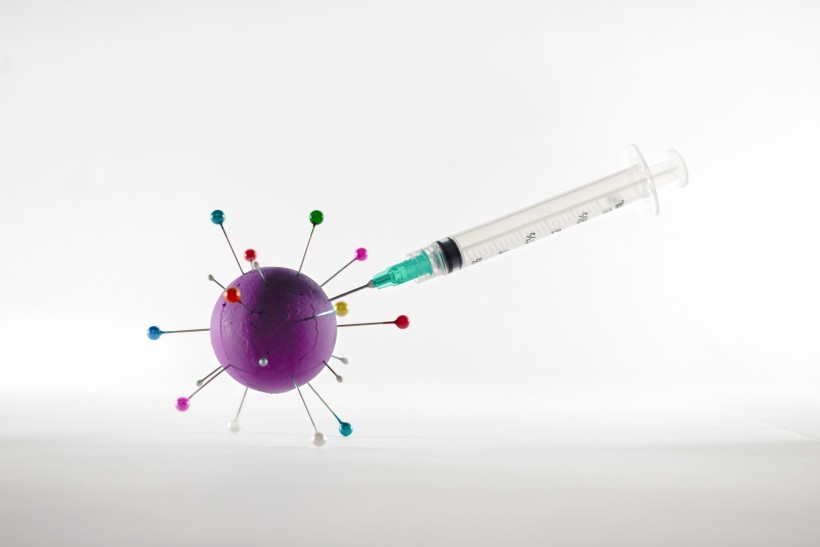Scientists from the National Institute of Allergy and Infectious Diseases (NIAID) collaborated with researchers from the National Health Institutes (NIH) and Walter Reed Army Institute of Research to lead a study on the Epstein-Barr virus (EBV).
The monoclonal antibodies (mAbs) targeting different sites of the virus successfully blocked the infection when tested in human cells in a laboratory setting. More so, one of the experimental mAbs protected the mice against the EBV virus and lymphoma.
The results appeared in the study, titled "Epstein-Barr virus gH/gL has multiple sites of vulnerability for virus neutralization and fusion inhibition," which is published in the journal Immunity.

Epstein-Barr Virus EBV Has Targetable Sites Monoclonal Antibodies Can Attack to Provide Protection Against the Infection
Epstein-Barr virus (EBV)
EBV is also known as human herpesvirus-4 and is one of the most common human viruses, according to the Centers for Disease Control and Prevention (CDC). It is also the main cause of mononucleosis and is linked to some cancer types, such as Hodgkin lymphoma, and autoimmune diseases, like multiple sclerosis.
Immunocompromised individuals are more likely to get infected with EBV compared to healthy people and they may develop severe symptoms and complications from the infection.
Symptoms could include fatigue, fever, inflamed throat, swollen lymph nodes in the neck, enlarged spleen, swollen liver, and rash. EBV spreads mostly through bodily fluids, like saliva, blood, semen during sexual intercourse, blood transfusions, and organ transplantations.
It can also be transmitted via objects, such as toothbrushes or drinking glasses used by an infected person. The virus could live long on the object as long as it remains moist.
The virus can spread for weeks even before an infected person experiences symptoms. It stays in the body in a latent or inactive state and can be reactivated to potentially spread to others no matter how much time has passed from the initial infection.
There is no specific treatment for EBV, but drinking fluids or staying hydrated, getting plenty of rest, and taking over-the-counter medications for pain and fever may help relieve some symptoms. But prevention is still better than cure, so it is important to protect oneself from kissing and sharing drinks, food, or personal items with infected people.
READ ALSO: What Causes Multiple Sclerosis? Scientists Says it Might be the Epstein-Barr Virus
Monoclonal Antibodies vs. EBV
Although there are no available vaccines yet against EBV, researchers of researchers put to light the vulnerabilities of EBV infection. Genetic Engineering and Biotechnology News reported that the team focused on the EBV glycoprotein complex known as gH/gL that is expressed on the surface of the virus for it to fuse with host cells. Targeting this glycoprotein could cripple the virus.
They developed a panel of human mAbs that targeted five antigenic sites on EBV gH/gL and then evaluated how the former blocked the fusion of the virus in human B cells and other epithelial cells in the mice model.
The authors wrote in their study that each mAbs prevented the infection and that one experimental mAbs provided near complete protection against vermia and lymphoma in the mice model.
Using X-ray crystallography and advanced microscopy, researchers analyzed the mAbs structure and two surface proteins in which they were able to identify multiple sites of vulnerability on the virus to target.
The team concluded that their findings provided structural and antigenic knowledge of the viral fusion and yielded a potential therapeutic antibody to prevent EBV infection.
RELATED ARTICLE: Cancer Research Gets New Pace: Epstein-Barr Virus Revitalizes Immortality Of Cell
Check out more news and information on Epstein-Barr Virus in Science Times.










!['Cosmic Glitch' in Einstein's Theory of General Relativity Could Be Explained in This New Scientific Tweak [Study]](https://1721181113.rsc.cdn77.org/data/thumbs/full/53435/258/146/50/40/cosmic-glitch-in-einsteins-theory-of-general-relativity-could-be-explained-in-this-new-scientific-tweak-study.jpeg)



